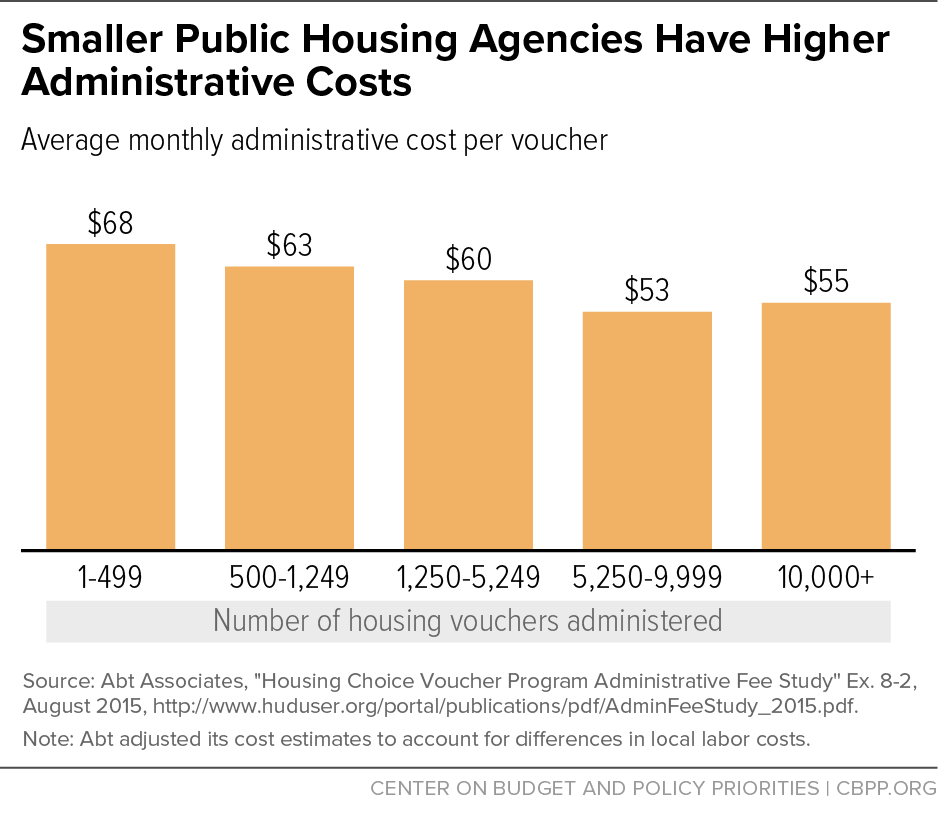BEYOND THE NUMBERS
A House hearing examined options yesterday to strengthen Housing Choice Vouchers, which are highly effective at reducing homelessness and housing instability but could be even better. However, one proposal the hearing examined — the Small Public Housing Agency Opportunity Act (SPHAOA) — would do more harm than good by sweeping aside key rules and safeguards for small public housing agencies administering vouchers and public housing.
SPHAOA, introduced in similar form in the House and Senate, is intended to address the administrative challenges stemming from the large number of small agencies administering rental assistance. Those challenges are considerable. Nearly 3,800 agencies administer vouchers, public housing, or both; 2,800 of them administer 550 or fewer total units; and more than 1,300 agencies administer fewer than 100 units. This fragmentation has significant disadvantages. Small agencies have higher administrative costs (see graph), require costlier federal oversight, and have lower performance ratings in the voucher program.
But SPHAOA would pursue risky and unnecessary deregulation. As Department of Housing and Urban Development (HUD) Deputy Assistant Secretary Dominique Blom pointed out in yesterday’s testimony, the bill would weaken HUD’s ability to ensure effective and accountable use of federal funds and protect low-income families. It could also raise federal costs, shrink the number of low-income families with housing assistance, and raise rents for many vulnerable households.
Policymakers have done much in recent years to streamline rental assistance, including enacting a broad set of reforms in the Housing Opportunity Through Modernization Act (HOTMA) in July. These reforms will cut administrative costs through careful changes that apply to all agencies, regardless of size. And they balance streamlining against other goals, such as ensuring effective assistance to low-income families and efficient use of federal funds.
Rather than weaken standards for small agencies, Congress and HUD should help agencies work together to achieve economies of scale and administer assistance more effectively. SPHAOA would take a step in this direction by allowing agencies that administer rental assistance jointly through a consortium to combine their reports to HUD. Consortia — which can allow multiple agencies to combine many aspects of program operations while maintaining separate identities — are a potentially powerful tool to ease administrative burdens and improve program performance. But realizing their potential will require stronger action than SPHAOA proposes.
As CBPP’s Barbara Sard explained at yesterday’s hearing, Congress should help and encourage agencies to form consortia. It should also fund a regional housing mobility demonstration this year to support collaborative efforts to help families with vouchers move to low-poverty neighborhoods with low crime and strong schools. And it should expand conversion of small agencies’ public housing to project-based vouchers under the Rental Assistance Demonstration, which would let the agencies continue managing the properties but greatly ease their administrative burdens.

